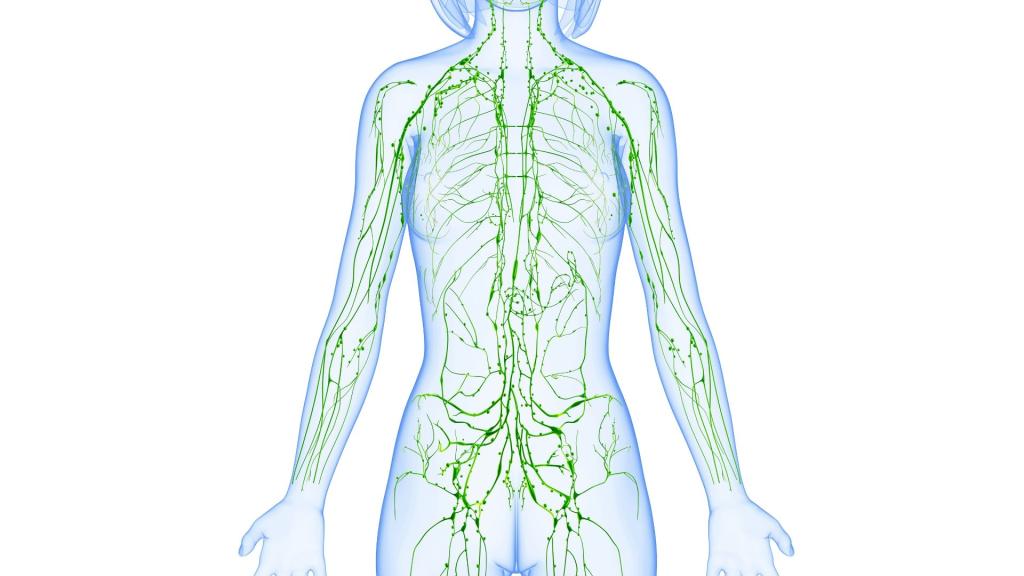
Irish Cancer Society funded pilot project at University Hospital Limerick significantly reducing development of cancer related lymphoedema
Breast cancer survivor Orla Brennan says patient education key in overcoming ‘distressing’ complication of cancer treatment
Pilot project is the only such hospital service outside of Dublin

Today on World Lymphedema Day, the Irish Cancer Society has announced results from its funded pilot project which aims to detect and prevent cancer-related lymphoedema at University Hospital Limerick, and is improving patient outcomes and quality of life.
This three-year pilot project, lymphoedema early detection service at UHL is the only one of its type in an acute hospital outside of Dublin.
Lymphoedema is a swelling that can occur in the arm, hand or torso after cancer treatments including surgery, radiotherapy, chemotherapy and endocrine therapies. These treatments can compromise the lymphatic system and lead to a build-up of lymph fluid which causes pain, skin changes and reduced function. This can be very distressing and adversely affect quality of life.
Early evidence since the establishment of the service in Limerick shows that patients have significantly reduced their risk of developing lymphoedema through prompt assessment, patient education and ongoing monitoring. Incidence of clinical lymphoedema in patients attending the UHL service is 1.5%, compared with around 21 and 30% internationally.
Preliminary results for the service in UHL are encouraging. Of 294 breast patients seen in the first 19 months, 43 showed early signs of lymphoedema. Of these, 30 resolved with treatment with 13 continuing to undergo treatment to reverse or reduce the swelling.
Orla Brennan, 50, a swimming coach from Newmarket-on-Fergus, County Clare, felt lymphoedema was far from her primary concern when she received her breast cancer diagnosis in November 2021. She said: “Initially, I didn’t know much about lymphoedema other than it is the nasty cousin of breast cancer. Lymphoedema can be very debilitating and distressing so it’s very deflating for a patient to hear that after your surgery, which in my case included a full axillary clearance of the lymph nodes, that you are not done; that you are still in it and that there is another thing called lymphoedema to worry about,”
“What I have found incredible about the early detection service is the patient education. I think that knowledge really is power and the more you educate yourself about something, the more you can do something about it. The Specialist Physiotherapist in Lymphoedema helped me in very simple language to understand the risk I faced of developing lymphoedema and what to look out for.”
The establishment of the service at UHL has seen all breast and gynaecological cancer patients who are receiving treatment and are deemed high risk for lymphoedema referred to see senior physiotherapists Sinead Cobbe and Kathy Nugent. Each patient has their lymphoedema index score measured before and at regular intervals during their treatment for up to two years.
A key part of the process involves the measurement of fluid in the limbs using a bio-impedance machine. If required, patients will then be treated with compression garments, skin care and tailored exercise programmes and monitored for up to two years. The programme also offers education and information sessions, online resources and support to patients throughout their involvement with the project.
Corrinne Hasson, Director of Services at the Irish Cancer Society said: “We are thrilled to see the incredible impact of this pilot project. Not only have we witnessed an improved experience and outcomes for patients involved, but we have also seen an improved quality of care for people already living with cancer related lymphoedeoma.
As an organisation, it became clear to us that there was a lack of services for lymphoedema patients in addition to a more general lack of focus on the education, prevention, and early detection of lymphoedema. The aim of our investment was to support the Irish Cancer Society’s commitment to drive innovation in cancer services through new initiatives. With just 5% of our funding from the State, none of this would be possible without the generous donations and fundraising efforts of the Irish public on days such as Daffodil Day.”
Physiotherapists Kathy Nugent and Sinead Cobbe have been key in developing the HSE health promotion materials now in use around the country for lymphoedema patients.
“Our primary objective in this service is to educate and empower breast and gynaecology cancer patients in the Midwest. We work with them to develop their own knowledge and expertise in assessing their own susceptibility to lymphoedema. And our patients are empowered to self-monitor and self-manage their risk factors through strategies including physical exercise, weight management, skin care and knowledge of the signs and symptoms,” said Sinead.
“When patients initially come in to see us, they are very worried about what they may have been told or read online about lymphoedema – and there is a lot of misinformation out there. We help them to stratify their risk and hopefully they walk out of our service knowing what they can do about it. And we are always available for any patient who goes on to develop symptoms that are a concern,” added Kathy.
